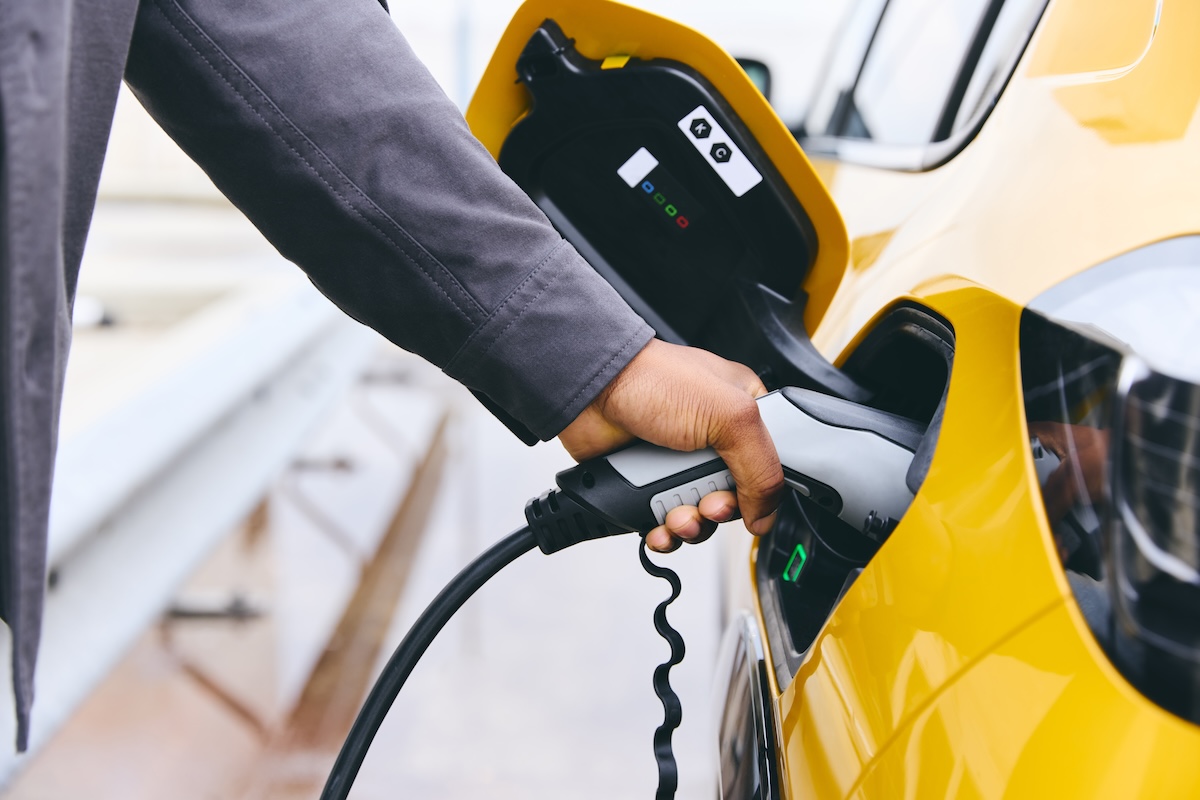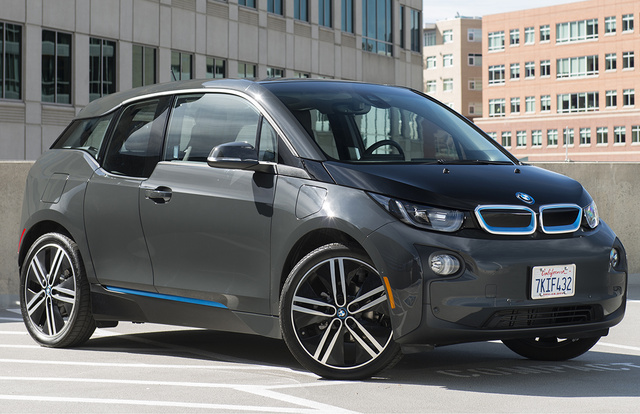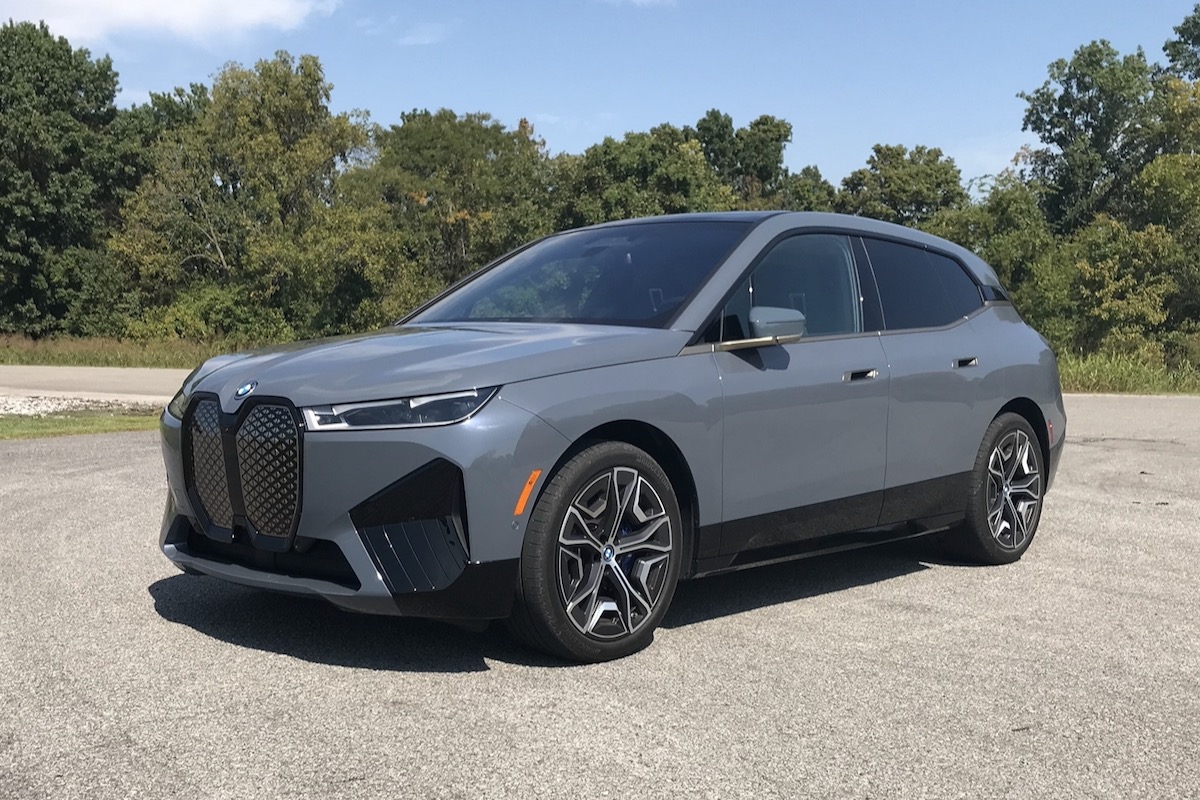Electric cars are becoming more and more common. Many of us have friends or neighbors who've taken the leap and seem quite happy with the decision. If you've been wondering whether an electric car is for you, here are some points to consider and some things you need to know.
How Will You Charge?

Driving a gas car is easy, because refueling is quick and there are gas stations on every corner. While infrastructure is rapidly improving, electric vehicle owners still have to plan ahead to have time to fully recharge their cars. Even the fastest charging electric cars can take an hour or more to fully recover battery power, and adding any meaningful amount of range through charging takes 15 to 20 minutes in the best case scenario.
Those factors can make it difficult to own an EV in an area that doesn't have an extensive network of public charging stations. A home charger is the only way to own and regularly charge electric vehicles in those areas, but even for people living in dense metro areas, a home charger can be a life-saver. Having the ability to completely charge your car while sleeping at home will make owning an electric car much easier and less stressful, especially if your daily commute falls well within your car's range.
What Kinds of Driving Will You Do?
Electric vehicles are a great way to reduce your emissions and cut your dependence on gas, but they don't do everything well. While Ford, Rivian, Chevrolet, GMC, and others are working on electrified pickup trucks that can tow and haul like any gas truck, only the Rivian has made it to market so far. Most other EVs offer light towing and hauling capabilities, but even a capable EV has limitations when it comes to doing the dirty work. Until there are more options beyond Rivian, an EV as a work vehicle may not be the best choice.
Electric cars are also not the best choice for road warriors who travel hundreds of miles by car each day. While range anxiety is almost a thing of the past as some EVs can travel 400 miles or more on a full charge, the time it takes to charge might make them impractical for some heavy drivers.
Where Do You Live?

If the air hurts your face for at least part of the year where you live, you may experience mixed results with charging and range. Extreme temperatures do not help EVs in any way with range, and cold weather can make charging a long and annoying process. Under 40 degrees, batteries produce less current and can deliver significantly reduced range.
What's Your Budget?
There are more EV owners now than ever before, thanks to several new models and pricing that is becoming more affordable over time. Even so, electric vehicles are still generally more expensive than comparable gas models, and though the price gap is narrowing between the two, EVs may still be out of reach for some people. There's also the cost of installing a home charger to consider: An electrician will need to install a 240-volt outlet and a charging station for the new car.
Beyond the purchase, charging an EV isn't always cheaper than buying an equivalent amount of gas. Adding miles of range costs money, and while many automakers are giving away free charging for a period of time after a new car sale, owners will notice the price difference between charging and refueling.
Benefits to Owning an EV

In addition to the potential downsides discussed above, electric vehicles do come with some unique benefits, as well.
Reduced Maintenance
Your gas car requires oil changes, brake pads, all manner of fluid and lubricant, and other component repairs related to heat management. While EVs aren't maintenance-free, they can require fewer upkeep repairs compared to gas cars. The electric motors do not require lubrication like an internal combustion engine does, and regenerative braking means that the driver isn't pressing the brake pedal as much. Reduced maintenance doesn't necessarily mean a longer warranty or longer factory coverage, but federal regulations do require that batteries be covered for at least eight years or 100,000 miles, so you're covered for quite a long time.
Parking and Lane Use Benefits
Some states, such as California, reward EV adopters by giving them special lane access on highways and by placing EV chargers in convenient locations. EV owners might see the benefit of less traffic on their commutes by using HOV lanes, and they may get the best parking spots at malls and other locations.
Tax Rebates
In response to climate change and to help ease people into owning electric vehicles, the government offers incentives. Evolving legislation may change the situation, but as it stands, buyers of certain EV models are eligible to receive federal tax credits. That doesn't mean the government is issuing checks when someone buys a new car. It means that buyers can file information on their car when submitting taxes for a credit of up to $7,500. Some states and local governments offer similar incentives that are available in addition to the federal tax credits.
Types of Electric Cars

There are various body styles and types of electric vehicles, just like there are with gas-powered cars. Available body styles include sedan, coupe, hatchback, and pickup truck.
Some manufacturers offer plug-in hybrid vehicles (PHEVs) that have some of the same benefits as EVs. Chrysler offers a PHEV minivan, for example, and Toyota makes the Prius in a PHEV format. Several automakers are getting into the EV game, and most major companies offer at least a partially electrified option. New models from BMW, Hyundai, Volkswagen, Kia, Mercedes, and others are hitting the streets.
Electric Car FAQ
Why are EVs more expensive than gas cars?
Even though electric cars have been around for decades, they're only just becoming common and easily accessible for consumers. Because of this, they can be more expensive to manufacture and develop. Batteries are also heavy, expensive to ship, and complicated to produce, requiring raw materials that can be difficult and costly to acquire.
What are some long-range EVs on sale today?
Several new EVs crest the 300-mile mark, and one offers over 500 miles in between charges.
- 2022 Lucid Air Dream Edition Range: 520 miles
- 2021 Teslas: Up to 405 miles
- 2022 Mercedes EQS 450: 350 miles
- 2022 Rivian R1T/R1S: 314/316 miles
- 2022 Ford Mustang Mach-E: Up to 305 miles
What are the types of EV chargers?
We'll keep things simple rather than getting into the weeds of different charging point adapters, but you do need to be aware of charging speeds.
- Level 1 chargers use 120-volt power and can take a long time to recharge batteries. Plugging an EV or even a PHEV into a household outlet to charge only adds between 3 and 5 miles of range per hour.
- Level 2 chargers use 240-volt power—the same kind your clothes dryer uses—and can add between 12 and 80 miles of range per hour.
- Level 3 chargers, also called DC fast chargers, can add between 3 and 20 miles per minute. Tesla's branded Superchargers are Level 3.
I have a hybrid. Do I need to recharge my battery pack?
No, hybrid cars do not require charging. Since they do not offer meaningful all-electric range and they have smaller battery packs, hybrids recover their limited range through regenerative braking. This was the case for the first Toyota Prius model and is still true for newer hybrids on the market.
Are electric cars fast?
Many electric cars offer staggering acceleration as a byproduct of the way electric motors deliver torque, but some were designed with speed as a priority. Vehicles like the Porsche Taycan, Tesla Model S Plaid, Audi RS e-tron GT, Tesla Model 3 Performance, and others can accelerate as quickly as a supercar but offer the same benefits as a regular EV.
Can I take my EV on a road trip?
Of course you can, but you'll need to plan ahead before hitting the road. Your car's battery can carry you for a few hundred miles, which may be enough for a day's driving for you, but if you plan on breezing across the U.S. in an EV, you might be disappointed. Remember to plan in time to stop and charge along the way.
Can I buy a used EV?
As more EVs hit the road, we'll start to see more hitting used car dealerships. It can be tempting to snap up a cheap EV, but buying used EVs requires the same level of diligence that buying a normal used car requires. Get the car inspected and take it for a test drive to make sure it behaves the way you expect. A knowledgable mechanic can give you an overview of the car's battery condition as well to help you understand how much usable life it has left.



